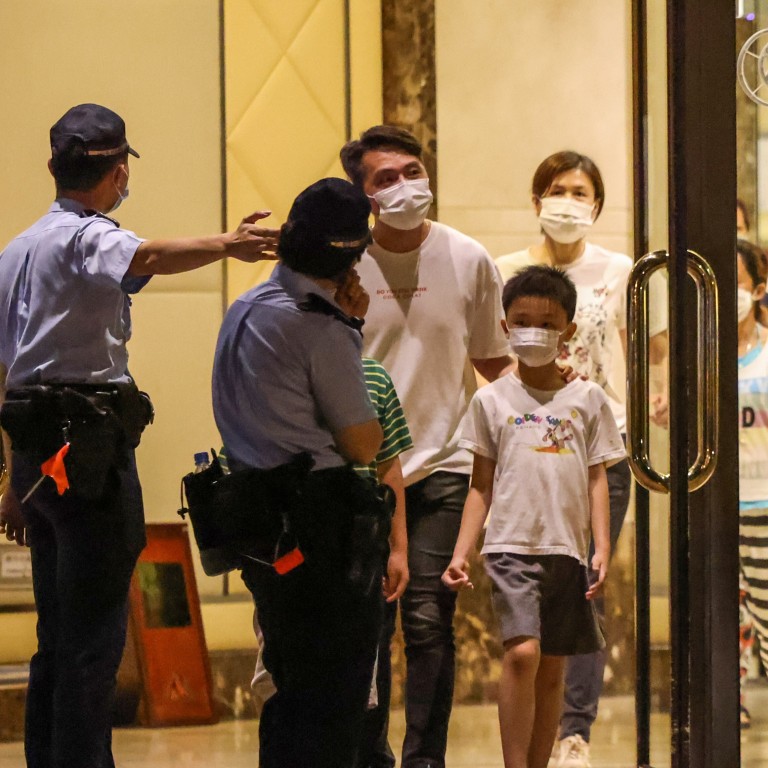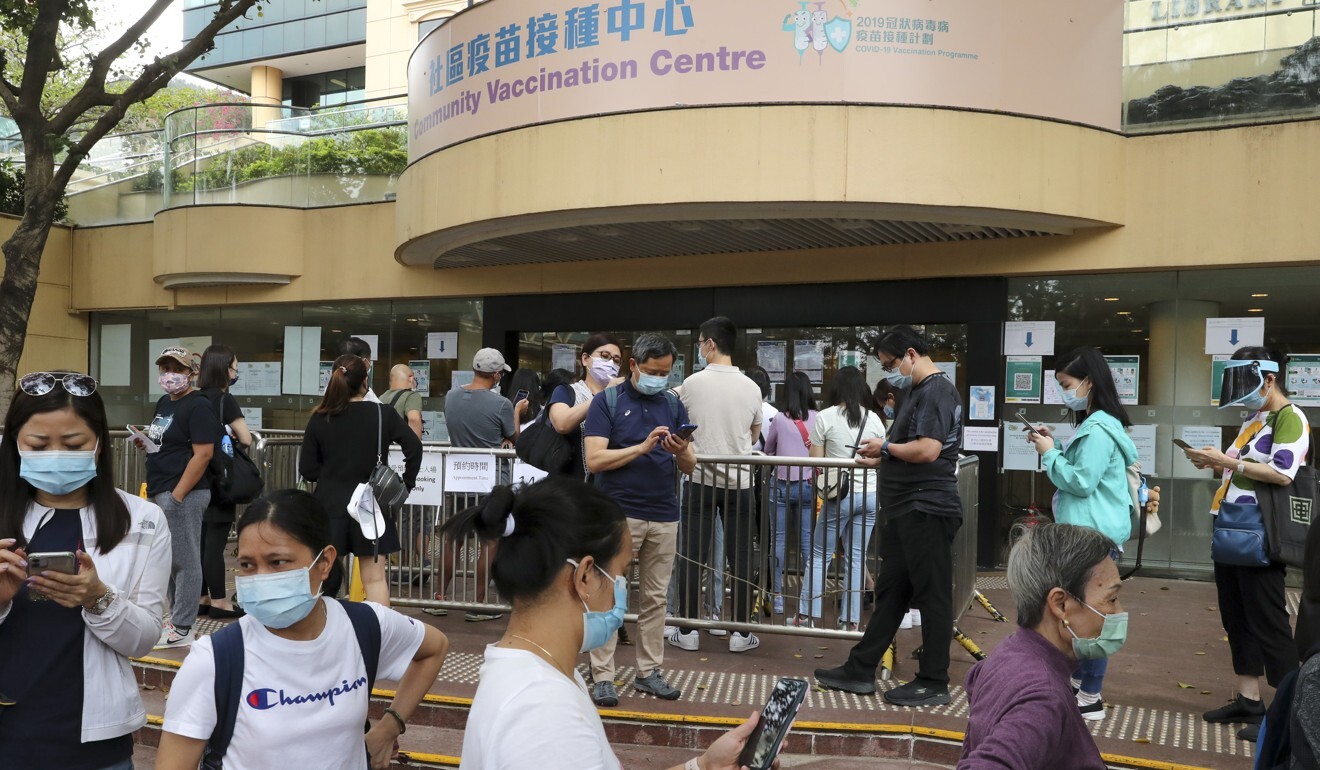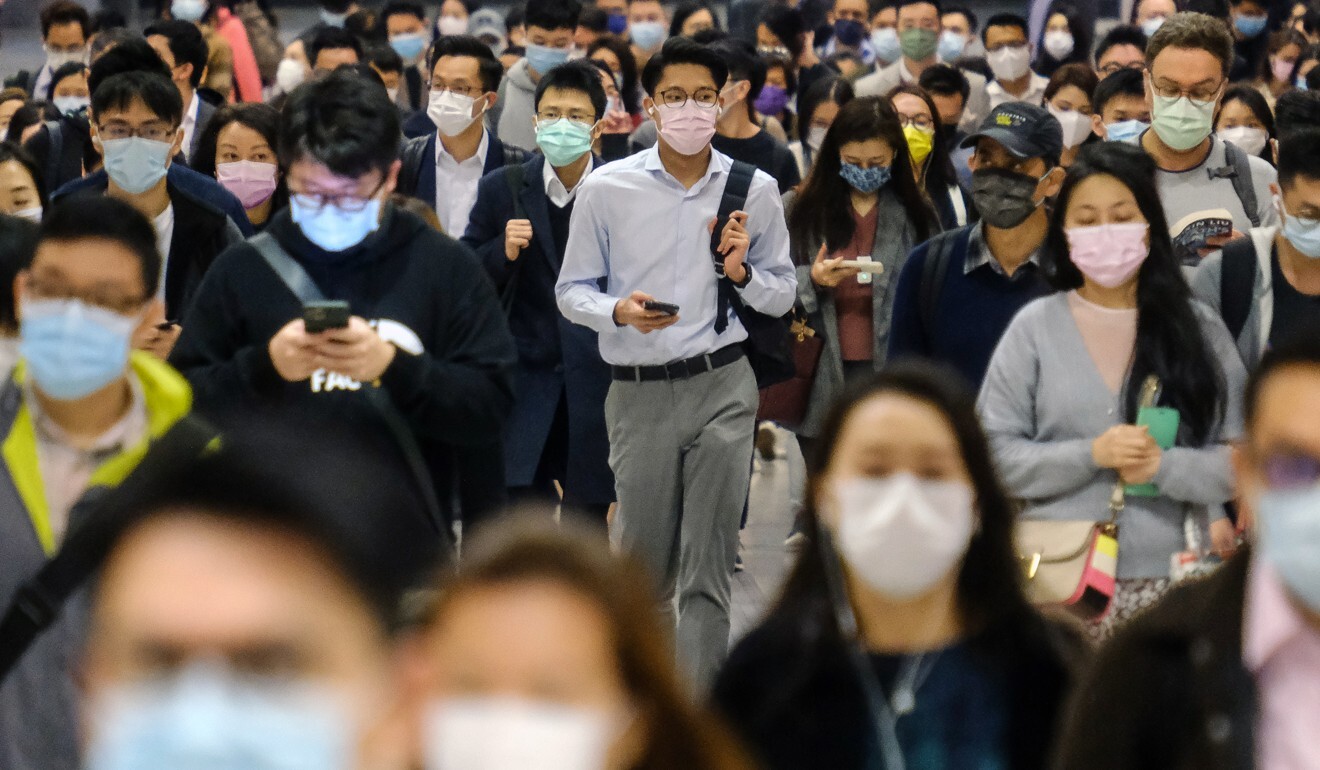
Coronavirus: Hong Kong’s slow vaccination rate puts city in ‘unfavourable’ spot; two new cases confirmed
- Secretary for the Civil Service Patrick Nip says next three months ‘critical period’ for boosting inoculations in hopes of reopening mainland China border
- One of Sunday’s cases ended a week-long streak of no untraceable infections, while another testing lockdown was also initiated, this time in Tai Kok Tsui
Secretary for the Civil Service Patrick Nip Tak-kuen, who oversees the city’s inoculation drive, said residents’ willingness to take the jabs would also play a crucial role in resuming the ability to travel to mainland China and abroad, an idea broached a day earlier by city leader Carrie Lam Cheng Yuet-ngor.
“We are trying to get to a high vaccination rate within the next three months, which is the critical period to decide whether we can open the borders and resume travel with the mainland,” Nip said.
While acknowledging the central government had yet to specify what conditions must be met before cross-border travel could begin again, the inoculation rate would definitely be one factor, he added.
“It’s to ensure residents do not get infected when travelling or bring the virus back into Hong Kong. This way we’ll be able to maintain a state of zero infections,” the chief executive said in a Saturday night Facebook post.
Hong Kong in quick U-turn on adding Guangdong to ‘medium-risk’ Covid-19 list
“One thing is clear, the vaccination rate has been increasing quickly across the world, in Britain, the United States, Europe, Israel and even in mainland China, but if our immunisation drive carries on at this slow pace, it will put us at a disadvantage,” Nip said in a televised interview.
He added that it was a critical time for getting the Covid-19 jabs, as the goal of “zero infections” was within reach.
Meanwhile, Dr Thomas Tsang Ho-fai, a member of the government’s vaccination task force, said Hong Kong could relax rules on wearing masks once the inoculation rate crossed 70 per cent of the population.
“I believe no one wants to wear masks for the rest of their lives,” Tsang told a radio programme, stressing that a high vaccination rate was a prerequisite for mask wearing to end.
Asked if the government would consider economic incentives to encourage residents to get vaccinated, Nip said a careful review was needed for the use of public funds. He was, however, more fulsome in his praise of the idea of private businesses doing so.
“I certainly welcome companies rewarding people for getting jabs. This can be seen as an acknowledgement and encouragement, and should not be seen as a negative thing,” he said.
Nip added that authorities had already adjusted the amount and timing of vaccine shipments to Hong Kong, particularly for the BioNTech version, for which inoculation centres are expected to close in late-September. Nip said there would only be very few centres offering those jabs after the deadline.
“We cannot possibly keep operating the vaccination centres with no end. They require a lot of resources to run, and we are wasting resources every day,” he said.

Another member of the task force, Dr Wallace Lau Chak-sing, also warned the city’s vaccine roll-out was too slow.
“It’s been about three months, and we are still hovering around 10 per cent, if we continue at this rate, only about 4.5 million people will be vaccinated,” he said, speaking on the same radio show as Tsang. “This would still be a long way from our target.”
Separately, authorities ordered an overnight lockdown of Island Harbourview Tower 6 in Tai Kok Tsui for mandatory screening at 8pm after a preliminary-positive test was returned with what was believed to be a mutated strain of Covid-19. The testing was expected to end at 7am on Monday.
The untraceable case involves an asymptomatic 46-year-old domestic helper who returned from Pakistan last month. She quarantined at Ramada Hong Kong Harbour View hotel in Sai Ying Pun between April 3 and April 23, and tested negative for Covid-19 on April 28 and May 7.

But she then tested positive on Saturday, with the preliminary test result showing she carried the N501Y mutant strain.
Another preliminary-positive case involved a nurse at the Kwun Chung Sports Centre community vaccination centre in Jordan who last worked on Saturday.
Sunday’s sole imported case was an arrival from the US, while the woman who ended the city’s streak of seven days without an untraceable infection had tested preliminary-positive a day earlier.
The domestic helper entered the city via Singapore on February 20, and spent more than a month living in her new employer’s flat at Earl Gardens in Ho Man Tin, as well as four days in accommodation arranged by an agency in Block B of Bell House in Yau Ma Tei. So far, 11 close contacts have been identified.
Currently, just 11.9 per cent of the city’s 7.5 million residents are fully vaccinated, while 16.7 per cent have received at least one jab. The city’s total number of confirmed cases now stands at 11,832, with 210 related deaths.

